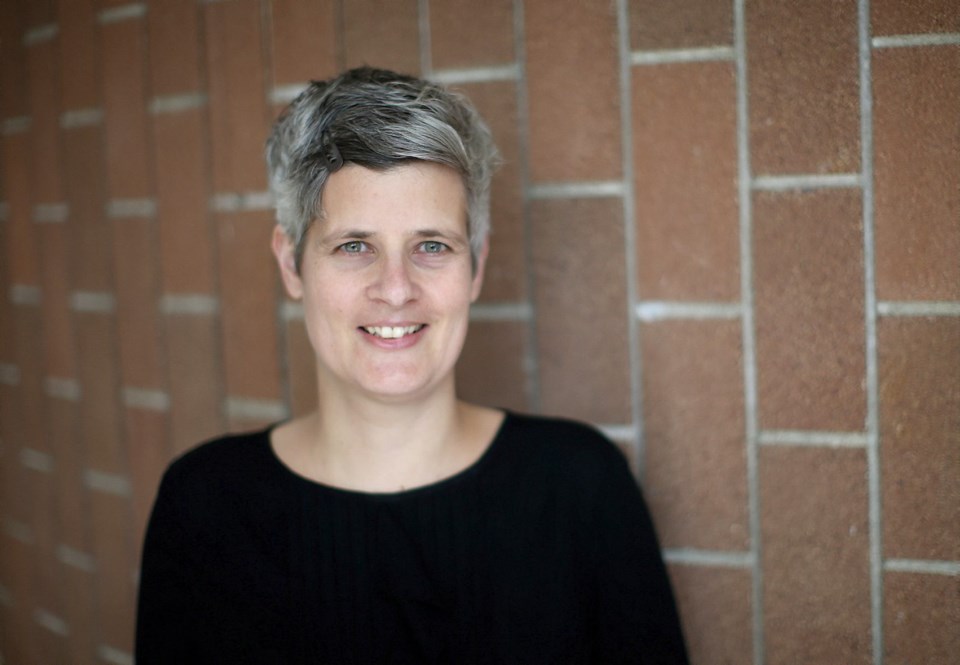Saying it’s become a toxic echo chamber rather than a place for civil discourse, Victoria Mayor Lisa Helps is quitting Facebook.
“When I started this job as mayor and when I was a councillor, Facebook was a civil place,” said Helps, whose savvy use of social media was seen as one of the keys to her razor-thin victory 3 1/2 years ago that claimed the mayor’s chain of office.
“Over the past four years Facebook has changed and it’s become sort of a polarized echo chamber where sometimes no matter what I post, everyone brings it back to one particular topic or another, or worse, when someone posts something positive on my page, they get attacked by whoever is waiting there in the echo chamber wings, waiting to pounce on any kind of positivity,” Helps said.
Helps, who decided to quit Facebook prior to the Cambridge Analytica data collection scandal that broke on the weekend, has been weaning herself off, deleting her Facebook apps from her phone and her iPad.
She said her research shows that Facebook “peddles outrage” — as algorithms that maximize attention give an advantage to negative messages.
“It’s actually designed to create segregated echo chambers and it’s actually designed to perpetrate and perpetuate negativity, fear and anger rather than anything happy,” she said.
“It’s contributing to our inability as a community to have a good old-fashioned conversation where we are actually listening to each other,” Helps said.
“Then what’s worse or what’s becoming pervasive is that that kind of anger and outrage doesn’t just remain on the screen.
“We’re starting to see people showing up at public engagement sessions or at city hall full of anger before they have any actual information.”
Helps is also concerned that social media and cellphone use are “incredibly addictive.”
Some research is showing that they might be actually shrivelling brains, she said, citing a study that found an average person touched their phone 2,617 times a day — of which 15 per cent were for Facebook.
“So we are all always distracted and I think that that makes it really difficult to focus on the big issues that are facing us,” she said.
“If we’re just always distracted, we’re not going to be able to solve the big challenges and we’ve got lots of big challenges.”
“Scariest of all,” said Helps, is research showing that device-driven multi-tasking “is actually shrivelling our brains. It’s shrivelling the prefrontal cortex or our brains, which is the part of the brain we need for rationality; it’s the part that we need for empathy; it’s the part that we need to kind of connect our social beings,” Helps said.
“I’m really worried about what this pervasive screen use is doing to our collective brain capacity, our collective cognitive capacity.”
Helps acknowledged that her kicking Facebook is not going to solve any of that.
“But I think it’s important to show leadership in areas that need attention,” she said.
Helps plans to officially quit Facebook on Friday evening. She will continue to maintain her home page and will continue to write a blog.
She also will keep her Twitter and Instagram accounts alive for now.
She said there are still lots of ways constituents can reach her, including phone, email, text, Messenger, or at the mayor’s community drop-ins.
“I feel it’s critically important that we can sit down together and talk and listen. I feel that social media in general, and Facebook in particular, actually is diminishing our capacity as humans to engage in civil society and I think that is very worrisome.”
Michael Prince, University of Victoria Lansdowne professor of social policy, noted there are many other social media platforms so he didn’t know whether the decision would hurt Helps in this election year.
He agreed Facebook has become a polarizing forum.
“This idea that the internet was going to usher in a new world of democratic dialogue and greater democratization of public discourse on public issues — I don’t see it.
“I see a lot of noise. I see a lot of anger and very polarized echo chambers,” Prince said.
Prince said he has always found Helps’ blog to be an effective communication tool.



